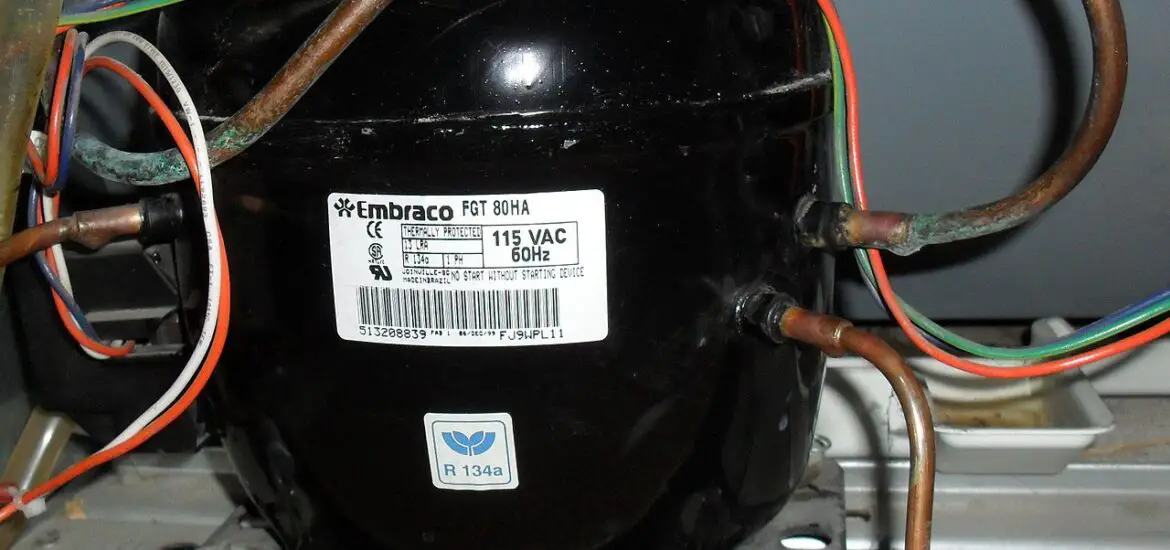Ever had a fridge go rogue on you? Suddenly, your ice cream’s melting, your milk’s spoiling, and you’re stuck wondering if the culprit might be your refrigerator compressor. So how can you test it? You’re in the right place, my friend. This guide will walk you through the steps, clear as day, of testing a refrigerator compressor. Grab a coffee, and let’s get down to it.

Table of Contents
Preparing for the Compressor Test
You wouldn’t go diving without a snorkel, would you? The same logic applies here. Before you start the test, you’ll need to gather some tools and make sure you’re safe.
Safety Precautions for Testing a Refrigerator Compressor
Rule number one, always unplug the fridge. No if’s, and’s, or but’s about it. You’re dealing with electricity here, and a nasty shock is the last thing you need. And, of course, clear the area. You don’t want to trip over your cat, after all.
Gathering Necessary Equipment
Just like Batman with his utility belt, you’ll need your tools. The star of the show is the multimeter, a handy little device that measures electrical resistance. You’ll also need safety gloves because safety always comes first, right?
Locating the Refrigerator Compressor
Now, where’s that compressor hiding, huh? Depending on your fridge model, it’s usually towards the back, lurking like a secret agent on a mission. It’s the part that looks like a black box and has pipes and wires coming out of it.
Understanding How to Use a Multimeter for Compressor Testing
You’ve got your multimeter in your hand, but how does this fancy device work? Well, stick with me, and you’ll be a pro in no time.
Introduction to Multimeters
Multimeters are like detectives. They help you find clues about what’s happening inside your electrical appliances. They measure voltage, resistance, and current, kind of like the vital signs of your fridge’s health.
Setting Up Your Multimeter for Compressor Test
You’ll want to set your multimeter to measure resistance (it’s usually signified by the Greek letter omega). Take a moment to familiarize yourself with your multimeter. Practice makes perfect, after all.
How to Interpret Multimeter Readings
Think of multimeter readings like text messages from your fridge. It’s telling you if there’s a good connection (low resistance) or a bad connection (high resistance). Interpreting these messages correctly is crucial for diagnosing your compressor’s health.
Check out these other related articles…
Freezer Compressor Not Running: How to Fix
Fridge Compressor Hot but Not Running: Causes & Solutions
Refrigeration Compressor Troubleshooting: Your Easy Guide
Refrigerator Compressor Only Runs for 10 Seconds [Solved]
Wine Cooler Compressor vs Thermoelectric: Expert Comparison
Fridge Compressor Not Running: Comprehensive Guide
Refrigeration Compressor Short Cycling: Your Essential Guide
Conducting the Fridge Compressor Test
Alright, it’s game time. Let’s get that multimeter humming and test that compressor.
Testing Refrigerator Compressor with Multimeter
Remember, safety first. Gloves on, multimeter ready. Attach one probe to a compressor terminal and the other to the fridge’s body. Make sure the multimeter gives a reading before you proceed.
Interpreting Compressor Test Results
The moment of truth. Your reading will either confirm your compressor is a champ or reveal it’s been slacking off. If the resistance is infinite, then you’ve got a problem on your hands. But if it’s low, then it’s all good news.
Next Steps After Testing a Fridge Compressor
Okay, the test is done. But what’s next? Let’s take a look.
What to Do If Your Refrigerator Compressor Passes the Test
If your compressor passed the test with flying colors, fantastic! But don’t rest on your laurels. Regular maintenance is key. Think of it like taking your car for regular oil changes .
What to Do If Your Refrigerator Compressor Fails the Test
If the test revealed that your compressor is struggling, don’t panic. It might be time to call a professional to take a closer look. It’s just like going to a doctor when you’re feeling under the weather.
